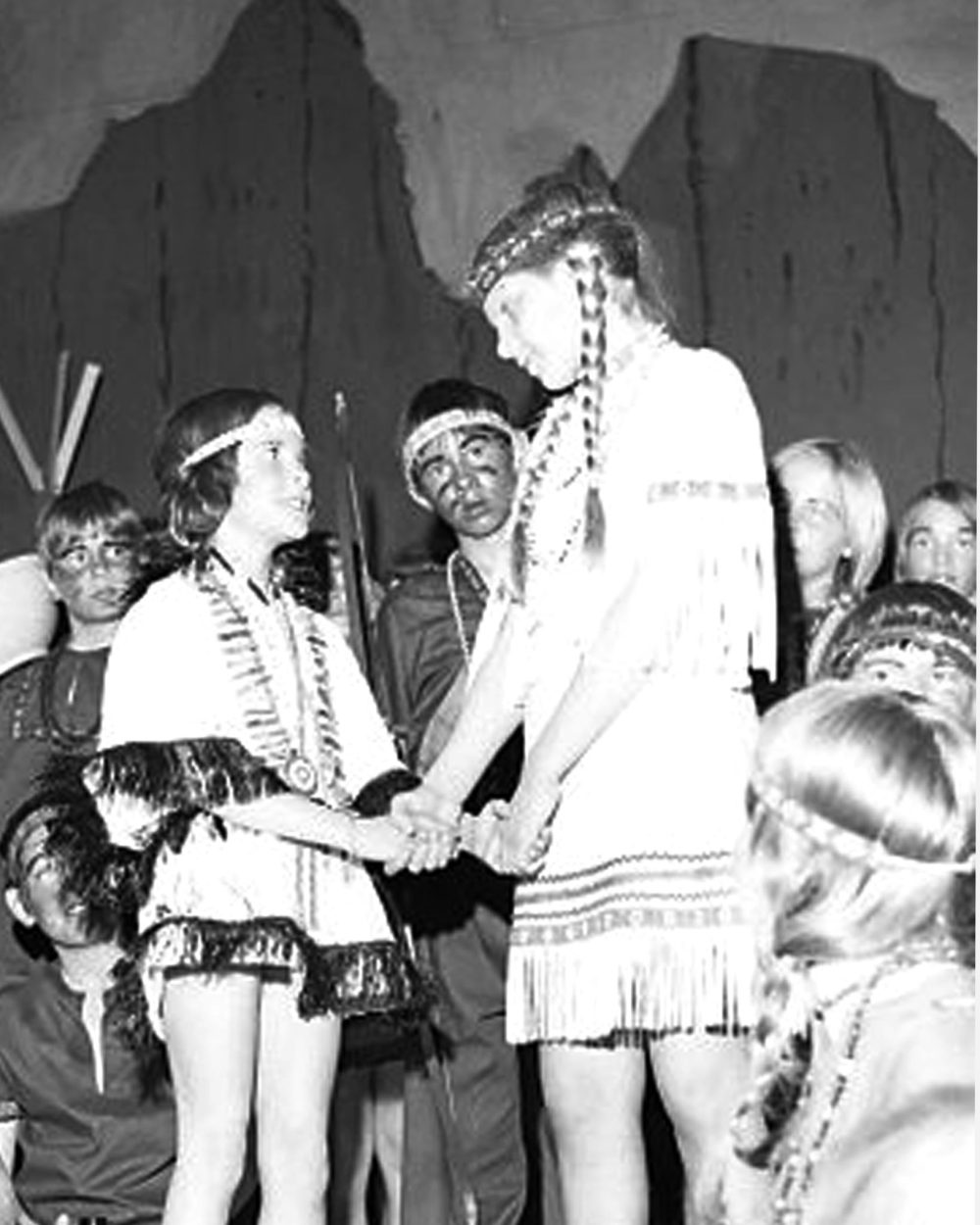COLUMN: Carillon Flashback May 22, 1974 – Woodlawn operetta raises Special Olympics funds
Advertisement
Hey there, time traveller!
This article was published 06/12/2024 (267 days ago), so information in it may no longer be current.
Grades five and six students from the Woodlawn School last week were rewarded for their hard work as they raised nearly $200, presenting an operetta to help fund a trip to the Canadian Special Olympics by students at the Steinbach school and participants at the Kindale Occupational Centre.
The gymnasium at the school was filled to capacity for the operetta Dawn Boy, which was the story of an Indian (Indigenous) tribe trying to find a way to end a long drought.
Having lost faith in their bombastic medicine man, whose promises of magic have consistently failed to bring rain, the tribe decides to send a courageous young brave to plead with the rain god himself.

Dawn Boy is chosen as the most likely to surmount the obstacles that lie in the way of the trek to the rain god’s palace.
The medicine man, See-All, decides to go with him. They get to the top of the mountain where a frightened, See-All hides behind a rock when the rain god speaks. He overhears what the rain god tells Dawn Boy and races ahead to tell the tribe. Praising his own bravery, while downgrading Dawn Boy, See-All says he has been told to shoot an arrow “till it pierces the clouds, to return no more.” He shoots the arrow, but no rain falls, and the arrow comes back.
Dawn Boy finally arrives and then produces the miracle of rain by shooting an arrow “till it pierces the clouds, never to return,” according to the promise of the rain god. As sparkling raindrops fall, the appreciative tribe crowns Dawn Boy chief.
Elaborate costumes, as well as the neat stage, makeup and lighting, gave the operetta a shadowy and mysterious atmosphere. The lighting in the second scene in the place of the rain god was especially effective in creating the varied moods of the rain god’s abode.
The words were sometimes hard to follow, but the set, lighting and costumes kept the show exciting.
In many parts, the acting was very convincing; the music was exciting and the soloists had clarity. The medicine man, played by Mark Peters, gave considerable humour to the performance, while the other leading characters – Joy Gatten, Marlyce Toews and Darrel Guenther had a good understanding of the characters they were playing.
Richard Enns as the rain god deserved special credit for holding up the two bars of lightning for some 15 minutes, while his arms must have felt like they were ready to fall off!
Woodlawn principal Wally Rempel said the total cost of the production was about $25, since the set was created by the Grade 5 and 6 art group, and the costumes were sewn by the students’ mothers.
A total of $181 was raised through ticket sales at 50 cents apiece to send special education students to compete in the Canadian Special Olympics in Winnipeg in June.
The Steinbach Kinsmen and Kinettes and the Steinbach branch of CAMR provided additional financial support for the Steinbach Special Olympics team.
The cost of attending the Canadian Special Olympic Games in Winnipeg amounted to $53 per athlete and chaperone.
The Special Olympics movement began in 1968 as a backyard summer camp for people with intellectual disabilities. The first Special Olympics Canada event was held in Toronto in 1969. The Special Olympics is solely for athletes with intellectual disabilities.
The Steinbach Special Olympics group attended a camp at Beausejour last year and this year will be sending a contingent of 18 athletes to the Special Olympics Canada event in Winnipeg, where they will join 1,400 participants from across Canada.
Accompanying the group to the event will be Bob Loewen and Brenda Klippenstein from the Occupational Centre, Woodlawn teacher Bernie Hiebert, and special education teacher Hilda Bartel.
